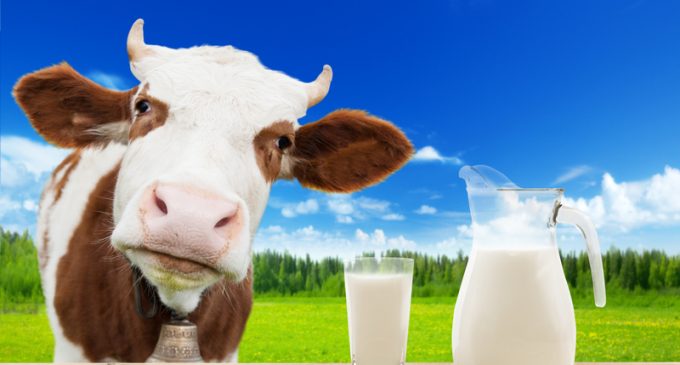
Organic is all the rage these days, but what does it mean when it comes to milk? Well, here are a few things that organic is supposed to mean:
It promises that the cows do not receive growth-producing hormones (like bovine growth hormone), which are administered to produce more milk.
That organic stamp also means your cows don't receive antibiotics, which goes hand in hand with hormones: Cows that are given hormones often need antibiotics to counter the increased odds of developing an infection. The presence of antibiotics in milk can lead to antibiotic failure or resistance in humans.
“Organic” also indicates that the animals spend their time grazing on pasture instead of ingesting feed like corn, grains, food concentrates, supplements, and even animal byproducts. And that's where things get a bit complicated.
That's because when some organic milk is tested, it's clear that the cows didn't spend most of their time grazing in a pasture.
“We tested [the milks] chemically, and you can see from the results how much time a cow has been eating pasture, which is what organic cows are supposed to be doing,” journalist Peter Whoriskey tells NPR. “And you could see, you know, conventional milk was very low in the grass-fed department. And some of the organic milk, especially ones from very small farms, was quite high. The larger corporate organic milks were sort of in the middle. And there was one large organic producer that was actually almost identical to conventional milk.”
So how do you know if your milk is organic? Here are a few tips:
Rodale's Organic Life reports that Grade A labeling is moot since all milk has to be Grade A. Meanwhile, there's some value to the Animal Welfare Approved label, which guarantees cows are not kept in isolation, calves are not weaned before 12 weeks, and injured animals are treated immediately with an emphasis on herbal remedies.
The USDA “organic” certification is definitely in a gray area. This is problematic since consumers pay more, nearly double, when a product has a “USDA Organic” label slapped on it. According to Whoriskey, the USDA's system to enforce organic milk production is weak. Instead of sending an official inspector, organic farms hire their own inspection certifiers who are unaffiliated with the USDA.
Do you drink organic milk? What's your favorite brand? What did you think of this Washington Post investigation? Share your thoughts in the comment section below!
Article Source: The Kitchn


There are no comments at the moment, do you want to add one?
Write a comment